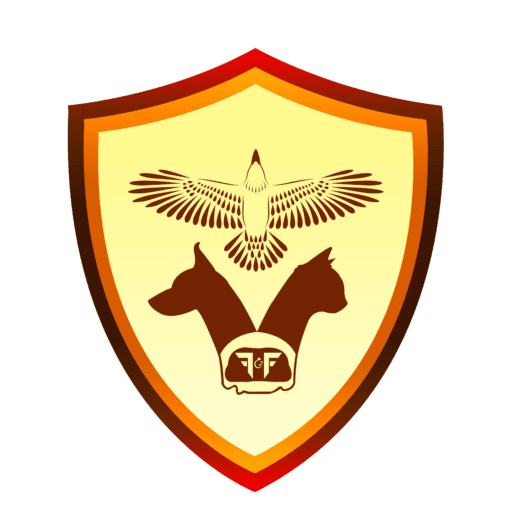The Vital Importance of Proper Nutrition in Elderly Animals: As pets age, their nutritional needs change. Their bodies may be less efficient at absorbing nutrients and processing waste. Additionally, aging animals often face health challenges such as osteoarthritis, joint issues, dental problems, kidney or liver disease, hormonal imbalances, and more. These factors significantly impact their dietary requirements. Understanding the unique nutritional needs of aged pets is crucial for ensuring they have a high quality of life.
Why Choose the Best Diet for Your Aging Pet: Choosing a suitable diet can be challenging as there are many options available on the market, from commercial foods to homemade meals. The goal is to select a food that meets their specific nutritional needs while also considering how it may affect their health and overall quality of life.
The Importance of Proper Nutrition for Your Aging Pet
Ageing pets often require adjustments in their dietary intake to accommodate changes in their metabolism, digestive systems, energy levels, and water retention. As a result, they may need more calories or fewer proteins depending on their specific condition.
- Skin & Coat Health: Maintaining healthy skin and coat are critical for senior pets due to the increased risk of developing skin irritations such as hot spots and hair loss. Nutritional deficiencies, especially in protein, fatty acids (omega-3s), and vitamins A and E, can lead to poor coat condition.
- Joint Health: As pets age, their joints become more susceptible to degeneration due to the reduced activity level and increased joint wear and tear. Joint supplements like glucosamine, chondroitin, and MSM are recommended for older animals to support mobility and cushioning around joints.
- Eye Health: Older pets may also have a heightened risk of developing eye conditions such as cataracts or glaucoma. Omega-3 fatty acids can help maintain healthy eyes by reducing inflammation and oxidative stress.
- Metabolic Conditions: Some age-related health problems, like diabetes, thyroid dysfunction, kidney disease, liver disease, dental issues, and inflammatory bowel disease (IBD), require specific dietary adjustments to manage their symptoms. These conditions often necessitate a tailored diet plan designed by veterinarians or veterinary nutritionists.
Understanding Your Pet’s Dietary Requirements:
Here are some essential factors to consider when choosing the best diet for your aging pet:
- Age, Activity Level, and Weight: Assess whether your pet is a young adult, middle-aged, or senior. Factors such as activity level and weight also play a role in determining nutritional needs. For example, an overweight senior cat may require fewer calories while a physically active geriatric dog might need more energy to maintain their lean body mass.
- Diet Type: Evaluate whether your pet prefers wet or dry food, as well as what texture and flavor they enjoy best. Senior pets often prefer softer textures like moistened kibbles since hard food may be harder for them to chew and digest. Some senior dogs benefit from semi-moist meals that combine the benefits of both wet and dry diets.
- Ingredient Quality: Ingredients are vital to their diet as they provide essential vitamins, minerals, proteins, and other nutrients. Opt for high-quality protein sources such as poultry or fish, which are easier for your pet’s digestive system to process compared to beef or lamb. High-fiber options like brown rice, barley, and green peas can help manage gastrointestinal issues while maintaining a healthy gut environment.
- Specialized Diets: If your aging pet is suffering from health conditions such as kidney disease (low-protein), liver disease (high-quality protein), IBD (prebiotics for digestive health), dental problems (soft kibble), or diabetes (glucose-controlled carbohydrates and proteins), then specialized therapeutic diets are recommended. Consultation with a veterinary nutritionist can guide you in selecting the appropriate diet.
- Preventive Measures: For pets prone to obesity, maintaining a healthy weight is crucial. Choose an energy-restricted diet that is designed specifically for weight management or one that limits fat content. This type of food might be more suitable for overweight senior cats and dogs who may struggle with shedding pounds.
Safe & Effective Feeding Tips:
Here are some practical tips to ensure your aging pet receives the proper nutrition:
- Regular Weight Checkups: Regular weigh-ins can help monitor if they’re gaining or losing weight too quickly. If you observe significant changes in their body mass index (BMI) and overall condition, consult with a veterinarian immediately.
- Monitor for Digestive Issues: Keep track of any digestive problems such as constipation, diarrhea, vomiting, or regurgitation. These symptoms might indicate issues related to dietary choices. Consult your veterinarian if they persist or worsen.
- Hydration: Elderly pets are more prone to dehydration due to reduced kidney function and mobility. Ensure that your pet has access to fresh water at all times, especially during hot weather or periods of physical stress such as exercise, illness, injury, or surgery.
- Finger Feeding: Allow senior animals to enjoy finger-feeding sessions by offering them small portions of their meal from a human hand. This can be a delightful way for older dogs and cats to feel more involved in their care.
The Role of Supplements in Your Pet’s Diet:
Sometimes, supplements are needed to support overall health in aged pets. These may include vitamins, minerals, probiotics, antioxidants, and other nutritional enhancers tailored for their specific needs. Consultation with a veterinary nutritionist or veterinarian can help determine which additional nutrients your pet requires.
Choosing the Best Diet: Final Recommendations:
To conclude, finding the perfect diet for your aging pet is crucial to ensure they thrive and enjoy their twilight years. Considerate factors such as age, activity level, weight, dietary preference, health condition, and preventive measures should guide your choice.
Note: Always consult with a veterinarian or veterinary nutritionist before making any significant changes to your pet’s diet. These experts can provide personalized advice based on their specific situation, ensuring that your senior pet receives the best possible care in every stage of their lives.
